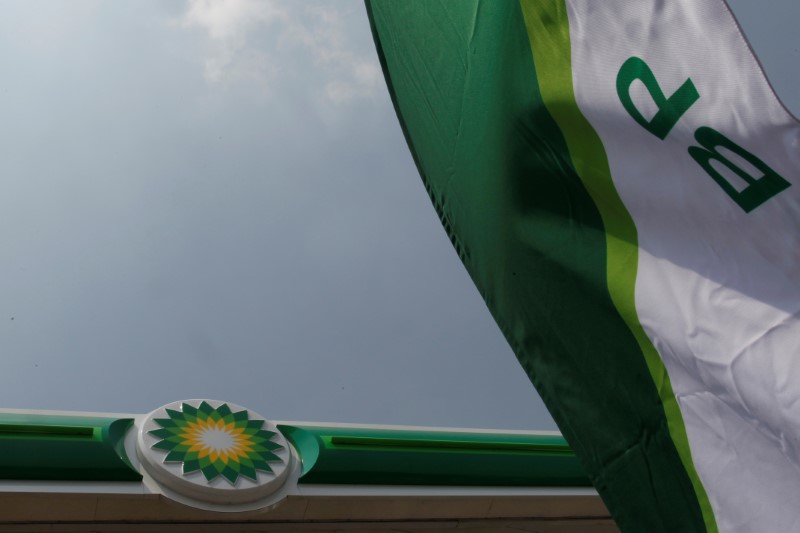This post was originally published on this site
https://i-invdn-com.akamaized.net/news/LYNXMPED3J1GC_M.jpg
Investing.com — The oil and gas industry will never have it as good again.
That’s the takeaway from BP’s announcement Monday, which carried a warning of “between $13 billion and $17.5 billion” in asset writedowns in the second quarter.
The move is the first big action by new chief executive Bernard Looney to bring the company into line with the straitened circumstances of the post-Covid world. It’s unlikely to be the last.
The writedowns reflect that BP (NYSE:BP) expects crude oil prices to be lower for longer because the pandemic will have “an enduring impact on the global economy, with the potential for weaker demand for energy for a sustained period.”
The news pushed BP shares down 4.0% by 5:30 AM ET (0930 GMT) to a two-week low. They also pulled the FTSE 100 1.4% lower, while the broader drag on oil and gas stocks elsewhere contributed to the STOXX 600 falling 1.1%.
Not only will the world want less energy than BP previously thought, it will also want cleaner energy.
“Management also has a growing expectation that the aftermath of the pandemic will accelerate the pace of transition to a lower carbon economy and energy system, as countries seek to ‘build back better’ so that their economies will be more resilient in the future,” it said in a statement to the stock exchange.
BP now expects Brent crude to average around $55 a barrel in the medium term, down from a working assumption of $60 previously. It also sees benchmark U.S. natural gas prices at $2.90 per million British thermal units, a level they haven’t seen for 15 months.
The new price forecasts are especially ominous for assets that BP has not yet begun developing. The company is expecting to write up to $10 billion off its exploration intangible assets, or 70% of the value they’re currently held at on the balance sheet.
The obvious corollary of Monday’s announcement is that BP’s operations will be generating less cash in future. That leaves Looney with the hard choice of either selling more and more marginal assets, with long-term consequences for its global clout and capabilities, cutting the group’s dividend.
Taking on ever more debt to keep payouts at their current level – as it did in the last quarter – is not an option if the company believes its own forecasts. BP’s road back to financial health from the Deepwater Horizon disaster has been long and painful, and it’s hard to see Looney throwing all of his predecessor’s good work away by simply hoping for things to improve.
The good news is that that much is already in the price. According to Investing.com data, the stock is currently yielding over 10%. In truth, that merely reflects expectations that the payout will be slashed by more than half, as rival Royal Dutch Shell (LON:RDSa) did at its first-quarter results. Having seen what Shell did, and what BP didn’t do, in April, the only surprise is that the market was still surprised by the news.

